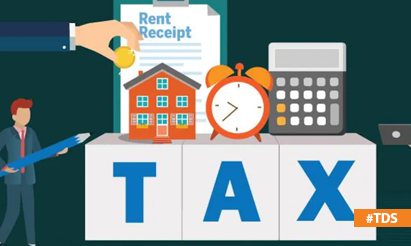Relocation Allowance in India: Meaning, Exemptions, and Key Details
Relocation allowance, often referred to as relocation assistance or relocation package, is a monetary benefit provided by employers to employees who are required to move to a new location for work-related purposes. It aims to offset the expenses incurred during the relocation process and facilitate a smooth transition for the employee.
Importance of Relocation Allowance
Relocating for a job can be a daunting task, involving significant expenses and logistical challenges. Relocation allowance plays a crucial role in alleviating the financial burden associated with moving to a new city or country. It helps employees focus on their job responsibilities without worrying about the costs involved in relocating their lives.
Types of Relocation Allowance
- Lump Sum Allowance: A one-time payment provided to cover various relocation expenses such as packing, transportation, and temporary accommodation.
- Temporary Living Allowance: Reimbursement for temporary housing expenses incurred by the employee until they find a permanent residence in the new location.
- Transportation Allowance: Compensation for travel expenses incurred during the relocation process, including airfare, train tickets, or mileage reimbursement for driving.
Eligibility Criteria for Relocation Allowance
Eligibility for relocation allowance may vary depending on the employer’s policies and the specific circumstances of the relocation. Typically, employees who are required to move for work-related reasons, such as a transfer to a new office or project site, are eligible for relocation assistance.
Factors Affecting Relocation Allowance
Several factors influence the amount and type of relocation allowance offered by employers, including the distance of the relocation, the employee’s seniority, the cost of living in the new location, and the company’s relocation budget.
How to Negotiate Relocation Allowance
Negotiating relocation allowance can be a crucial step in securing a favorable relocation package. It’s essential for employees to research typical relocation benefits in their industry and leverage their skills and experience to negotiate for a comprehensive package that meets their needs.
Tax Implications of Relocation Allowance
Relocation allowance may have tax implications for both employers and employees. While some relocation expenses may be tax-deductible or exempt from taxes, others may be subject to taxation. It’s important for employees to consult with tax professionals to understand the tax implications of their relocation package.
Tips for Maximizing Relocation Allowance
- Start planning early and gather quotes from moving companies to estimate relocation costs.
- Keep thorough records of all relocation-related expenses for tax purposes.
- Consider negotiating for additional benefits such as spousal support or language training if relocating internationally.
Common Mistakes to Avoid
- Underestimating relocation expenses and failing to budget accordingly.
- Accepting the initial relocation package without negotiating for better terms.
- Not seeking clarification on relocation policies and entitlements from the employer.
Case Studies: Relocation Allowance Packages
- Case Study 1: An IT professional relocates from Bangalore to Pune for a new job opportunity. The employer offers a lump sum relocation allowance to cover moving expenses, temporary accommodation, and transportation costs.
- Case Study 2: A marketing manager relocates from Mumbai to Delhi for a promotion. The employer provides a comprehensive relocation package, including reimbursement for packing and moving services, temporary housing, and transportation expenses.
Future Trends in Relocation Allowance
With the rise of remote work and global mobility, the landscape of relocation allowance is evolving. Companies may increasingly offer flexible relocation packages tailored to individual employee needs, including remote work allowances and digital nomad support.
Conclusion
Relocation allowance plays a vital role in supporting employees during the transition to a new location for work-related purposes. By understanding the types of relocation assistance available, eligibility criteria, and tips for negotiation, employees can maximize their relocation benefits and ensure a smooth transition.
FAQs
- Is relocation allowance taxable in India?
- Relocation allowance may be taxable in India, depending on the specific components of the allowance and the employee’s tax status.
- What expenses are typically covered by relocation allowance?
- Relocation allowance may cover expenses such as packing and moving, temporary housing, transportation, and storage costs.
- Can I negotiate my relocation package with my employer?
- Yes, employees can negotiate their relocation package with their employer, especially if they have unique circumstances or requirements.
- Are there any restrictions on how I can use my relocation allowance?
- Employers may have policies or guidelines regarding the use of relocation allowance, so it’s essential to clarify any restrictions with your employer.
- Do all companies offer relocation allowance to their employees?
- Not all companies offer relocation allowance, but it’s common practice among companies that require employees to relocate for work.
Disclaimer: The views expressed above are for informational purposes only based on industry reports and related news stories. PropertyPistol does not guarantee the accuracy, completeness, or reliability of the information and shall not be held responsible for any action taken based on the published information.




